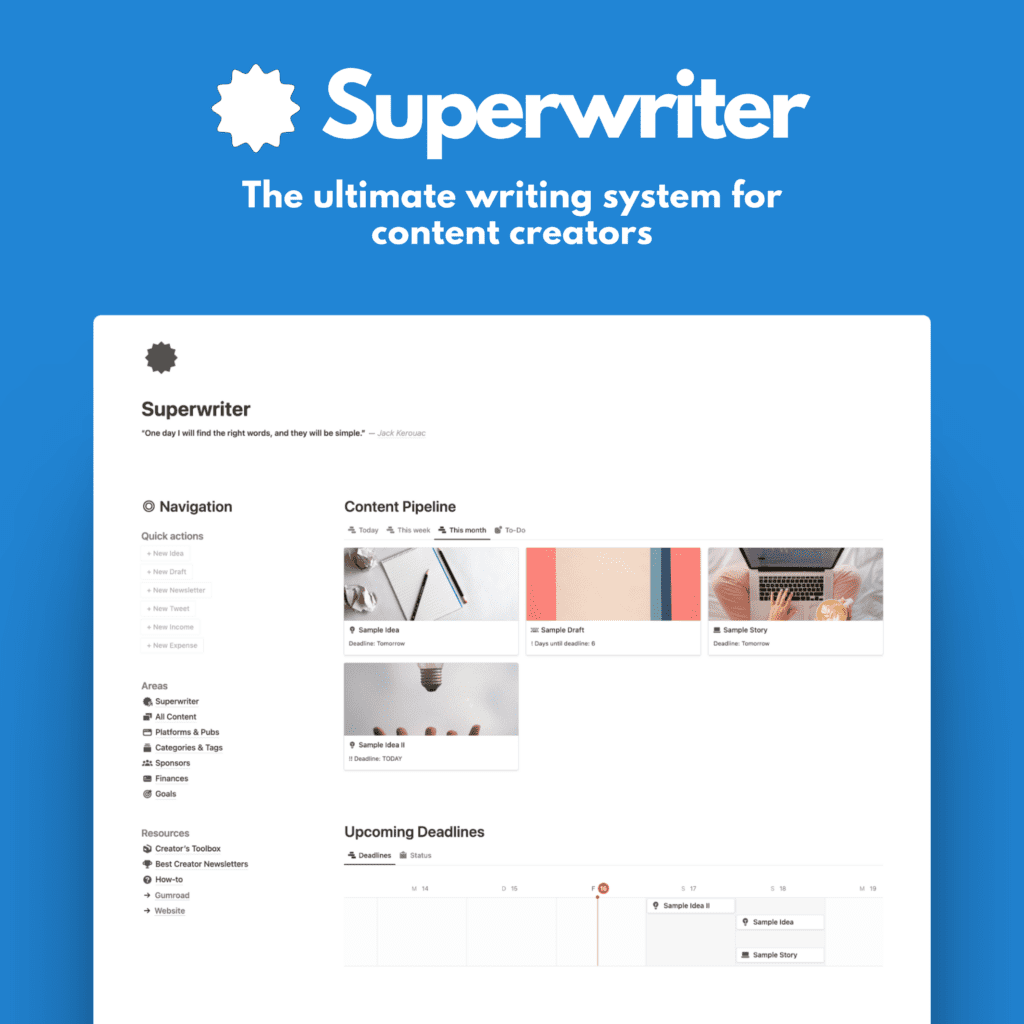Imagine you’re raking in thousands of views from thousands of subscribers every day and making quite a few $$$ per month.
And then, you get banned from the service.
That’s what happened to me. This makes three things clear:
- Be safe! Have multiple income streams.
- Use multiple platforms and
- most importantly, grow a platform-independent audience
Let’s dive deeper!
Backstory
What did happen to me?
For three years now, I’ve built a few faceless YouTube channels. Initially, it was tough to get going. I watched and listened to all the “how to make money on YouTube”-gurus in the beginning.
The tips seemed to work. I was surprised too.
My first channel got more and more views. Then, I got accepted into the YouTube partner program, and finally, I started making money. A few bucks at first, then it went up to a few hundred per months.
One day, I got an email from YouTube:
“Your channel is no longer eligible for earnings”
Boom! All monthly income gone.
This story isn’t about YouTube though. Luckily, before that mail, I had already built additional income streams with other faceless channels, writing, and selling digital products. If you want to know why my channel got kicked off YouTube, you can read about it here.
What I learned
Learn from your mistakes, right? That’s the idea.
What to do when you get kicked off a platform? What would you do if you got kicked off Medium tomorrow? Or banned by Twitter next week?
Here’s where email lists comes into play.
The value of email lists
To be honest, initially, I didn’t understand the value or use of building an email list. And I know some of you don’t see the value.
The value is straightforward. You can take that email list with you from platform to platform. You’ve built a platform-independent audience.
In contrast, on social media platforms, you grow followers, but when you get kicked out, these followers are lost. You can’t take them with you.
My friend, Chris Zappa, found that out the hard way when he got banned from Twitter.
On social media, you tap into a large audience pool. That’s great. It’s easier to grow your reach. But it’s risky too. When you get banned, the audience is lost.
Platform-independence
That’s why building an email list is crucial. For writers, but also for other creators.
David B. Clear asked on Twitter.
Why do YouTubers not grow email lists? Why is it just bloggers and writers who care about them?
My answer was, I know many YouTubers who grow an email list. For the same reason as stated above. Platform-independence.
Now, it’s harder for YouTuber because their audience usually wants visual content, not written content. Yet, many do it. Because they see the value of growing an independent audience that they can take with them from platform to platform.
Hypothetically
I recently discovered that Substack, after conquering the writing business and dabbling with podcasts, is now venturing into video.
Imagine this worked out well.
YouTuber who grow an email list could take this audience with them to Substack and grow their video business there. I’m not saying it’s happening. We’re far from it. I just like to dream.
The bottom line
You know, sometimes all the talk about newsletters and email lists gets annoying. I’m with you, it does.
In the bigger picture, however, growing an email list (or another form of a platform-independent audience) is a valuable safety net and a priceless resource.
You never know.
Social media platforms might ban you, Elon might start charging us a subscription for Twitter in the future, Zuckerberg might drive everything against the wall (even more than he already has), or Medium might die tomorrow.
Whatever the case may be, you still have that email list.
In a way, Medium saw the importance already and gave us the email subscription feature. They didn’t do it for us, though. They’re trying to beat Substack.
Why is an email list platform-independent?
You can export the list from any service and upload it somewhere else. You should, however, always keep your subscribers backed up somewhere other than on the email list provider itself, in case that service went away.
I have a handy subscriber template for Notion that I use to back up regularly. You can find that for free here, if you’re interested.
So, are email lists important? I say yes. What about you?








